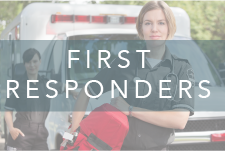What Is Critical Incident Stress Management (CISM)?
- Ben Pearson
- Oct 16, 2020
- 4 min read
Updated: Mar 1, 2022
Critical Incident Stress Management (CISM) is a structured program designed to help those who have recently experienced trauma, particularly in the workplace. While individuals are often employed after traumatic events like fires, shootings, suicides, or any other events that present a risk of harm or death while at work, they can also be employed for a number of other traumatic events, such as natural disasters.
CISM is intended to help in the short term, and allow those affected a formal, structured event in which to voice their experiences, emotions, and work out personal stress management strategies, or to learn how to recognize indicators that someone may need to seek more professional help to cope with the traumatic experience.
The critical incident stress management model isn’t intended to replace professional help for traumatic events and is also referred to as “psychological first aid” rather than replace the need for professional trauma programs.
History of Critical Incident Stress Management

Various Types of Crisis Intervention
Critical Incident Stress Management techniques often take a number of different forms. While some spheres may employ the pre-crisis education program, others may utilize a more reactive approach. The various ways of utilizing CISM techniques fall primarily into the categories of diffusing and critical incident stress debriefing (CISD) but may also include any number of other support systems, such as community support programs, grief sessions, or follow-up sessions, as well as the pre-crisis education program. The critical incident stress management model is able to be used in conjunction with other group or individual support programs, or provide the necessary education to individuals who may be needing other, more intense levels of crisis and trauma treatment.
What Is Critical Incident Stress Debriefing?
Critical incident stress debriefing is an organized, voluntary meeting that occurs within about two or three days of the incident occurring. The discussion is led by a trained individual and operates with the intention of helping those affected by a traumatic event to return to their regular routines as best as possible. The purpose of critical incident stress debriefing after a disaster is to provide an open forum where individuals affected can share their feelings and thoughts on the incident, as well as provide a degree of peer support. They are intended to normalize the reactions that many have to traumatic events and can help educate each person in attendance on the difference between these normal reactions, or if someone will need to seek additional support. Attendance to these is typically voluntary, and those in attendance are not required to speak unless they feel the need to share about their experience in crisis.
Critical Incident Stress Management – Diffusal

CISM and First Responders
First responders may be trained to help civilians address a traumatic situation in the moment, in order to help them begin to process the events and regain a sense of control over their emotional state. First responders will still need to be trained on the proper way in which to help someone with this “psychological first aid.” Not only can some first responders be able to provide this kind of service to civilians during times of crisis, but other first responders themselves are also often the recipients of critical incident stress management practices, due to their inherently difficult, intense, and dangerous line of work. Having first responders trained in CISM practices can help civilians return to a sense of normalcy, but being able to help their fellow first responders can help their overall mental state. Furthermore, it can help them address the crisis and continue to save lives while still addressing their own, personal needs.
Critical incidents, trauma, and crises can happen suddenly, and their effects can be devastating on a person and their own mental health. Crisis Incident Stress Management is intended to get people back to a functioning “normal” as they begin to process the current events and address the situation and next steps that they may take.
While everyone’s “normal” may be different, it is important that all of those involved in a crisis be made aware of the symptoms of trauma or PTSD and be able to seek more individualized, personal care depending on their own mental state. Having someone on the ground of the event, providing this kind of “psychological first aid” can make the difference, as well as provide the resources necessary for someone to be able to reach out to trained professionals for continuing care. CISM is not a replacement for trained psychological care for trauma or PTSD treatment. It is focused much more on the immediate, short-term grounding strategies in order to help reduce distress in the situation, and is designed to help someone clear their mind and rationalize the events in order to make more informed decisions about their wellbeing.




